A taste for death
And we're off - one book down in the Vintage Mystery / Just the facts Challenge. P.D. James' 1986 mystery A taste for death just makes it under the wire for the Silver challenge, and ticks off the death by dagger (or similar implement), in this case the victim's family heirloom cut-throat razor.
I remember reading this novel when it was first published, and even more than the wonderful Independent TV serializations of James's novels (Roy Marsden will forever be Adam Dalgleish for me, even if the rather more hirsute Martin Shaw is physically closer to James' description), this was the book that got me into P.D. James as a writer. Taste for death was highly praised at the time winning a Silver Dagger (James was beaten by Ruth Rendell), and was nominated for the 1987 Booker Prize. I can understand why it was nominated for the Booker, as the writing, as you would expect with James, is uniformly beautiful.
It's probably 20 years since I last read the novel, and although I still admire it, it didn't have the same impact this time around. So what's the story?
Commander Adam Dalgleish is about to become the head of a new task force, who will take over investigations into "sensitive" crimes, principally involving government or other high-ranking officials. Dalgleish has recently met Paul Berowne, a member of Her Majesty's government, who has received a threatening letter. The letter is later leaked to the Press, and suggests that Berowne may have been complicit in some way with the death of his wife and two other women. Although Berowne was indeed connected in some way with all three women, the allegations seem completely unfounded.
Shortly afterwards Berowne resigns as an MP following a mystical experience in an inner city parish church, a few days later his body will be found there along with a tramp, both with their throats cut. Did Berowne kill the tramp and then commit suicide? Or is Dalgleish investigating a double murder?
As ever with James, the plotting in terms of the crime itself is admirable, and I loved the detectives - the cool and rather detached Dalgleish, Kate Miskin from a tough background, and Massingham, whose upper-crustness is so thick you'd need a sizeable kitchen knife to cut it.
I also loved the odd moment of pure comedy, especially the crime writing grandmother, who is modelled, I suspect, on James herself - "a buxom grandmother noted for her detective stories, who gazed mournfully at the camera as if deploying either the bloodiness of her craft or the size of her advance."
But much as I admired the basic plotting, the way in which James ratchets up the tension, and the explosive denouement, which, even if I thought it was rather unlikely, was still compulsive reading, there was something about A taste for death that left me cold.
Agatha Christie was once accused (by Philip Larkin, I think) of "snobbery with violence". I've always thought that this was a most unfair accusation. Christie was, of course, very much of her time. She was middle-class, she had prejudices, but it's also very noticeable that her detectives are at their most angry when dealing with the deaths of those who are least able to fight back - note the reaction of Miss Marple to the death of a maid, who even in death is mocked.
If P.D. James's snobbery is less marked in some ways, it's also more insidious. A scion of an upper-class family can be trusted inside a church in a way that a homeless person can't, council estates are dangerous places, and their inhabitants are probably on drugs, living off the state, or both. It is doubly shocking then when murder reaches the upper-classes, and where (horror!) they may even be harbouring the enemy within. There is a warning here that letting lower classes into your home, even as servants, can seriously damage your health. Yes, I am poking fun here a little, but it is also a not unfair view of how class is represented in James.
A compelling read - undoubtedly, yes - but becoming more dated. Although the crime itself was well constructed, there are anomalies in the book too. For example - How did it become common knowledge that Berowne had some kind of religious conversion? Why did the priest allow him to stay in the church? How did everyone in the house know that he was staying in the church when he hadn't told anyone? What was the importance of the diary (I suspect this may have been one of Hitchcock's McGuffins, except that it didn't even move the plot forward).
So many threads didn't really hold together. A potentially great read, but flawed.
I remember reading this novel when it was first published, and even more than the wonderful Independent TV serializations of James's novels (Roy Marsden will forever be Adam Dalgleish for me, even if the rather more hirsute Martin Shaw is physically closer to James' description), this was the book that got me into P.D. James as a writer. Taste for death was highly praised at the time winning a Silver Dagger (James was beaten by Ruth Rendell), and was nominated for the 1987 Booker Prize. I can understand why it was nominated for the Booker, as the writing, as you would expect with James, is uniformly beautiful.
It's probably 20 years since I last read the novel, and although I still admire it, it didn't have the same impact this time around. So what's the story?
 |
| Roy Marsden, the perfect Adam Dalgleish |
Shortly afterwards Berowne resigns as an MP following a mystical experience in an inner city parish church, a few days later his body will be found there along with a tramp, both with their throats cut. Did Berowne kill the tramp and then commit suicide? Or is Dalgleish investigating a double murder?
As ever with James, the plotting in terms of the crime itself is admirable, and I loved the detectives - the cool and rather detached Dalgleish, Kate Miskin from a tough background, and Massingham, whose upper-crustness is so thick you'd need a sizeable kitchen knife to cut it.
 |
| Musing on the size of her advance? P.D. James at home. |
But much as I admired the basic plotting, the way in which James ratchets up the tension, and the explosive denouement, which, even if I thought it was rather unlikely, was still compulsive reading, there was something about A taste for death that left me cold.
Agatha Christie was once accused (by Philip Larkin, I think) of "snobbery with violence". I've always thought that this was a most unfair accusation. Christie was, of course, very much of her time. She was middle-class, she had prejudices, but it's also very noticeable that her detectives are at their most angry when dealing with the deaths of those who are least able to fight back - note the reaction of Miss Marple to the death of a maid, who even in death is mocked.
If P.D. James's snobbery is less marked in some ways, it's also more insidious. A scion of an upper-class family can be trusted inside a church in a way that a homeless person can't, council estates are dangerous places, and their inhabitants are probably on drugs, living off the state, or both. It is doubly shocking then when murder reaches the upper-classes, and where (horror!) they may even be harbouring the enemy within. There is a warning here that letting lower classes into your home, even as servants, can seriously damage your health. Yes, I am poking fun here a little, but it is also a not unfair view of how class is represented in James.
A compelling read - undoubtedly, yes - but becoming more dated. Although the crime itself was well constructed, there are anomalies in the book too. For example - How did it become common knowledge that Berowne had some kind of religious conversion? Why did the priest allow him to stay in the church? How did everyone in the house know that he was staying in the church when he hadn't told anyone? What was the importance of the diary (I suspect this may have been one of Hitchcock's McGuffins, except that it didn't even move the plot forward).
So many threads didn't really hold together. A potentially great read, but flawed.

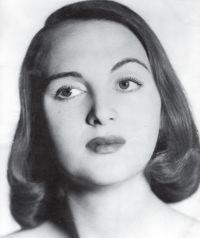
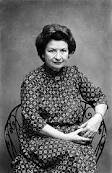

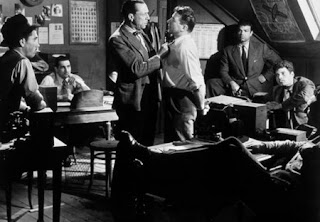

.jpeg)
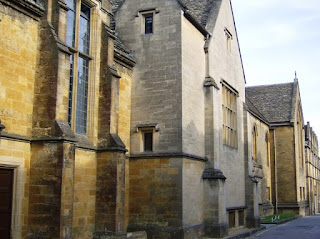
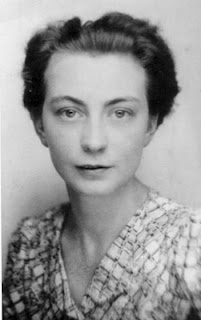

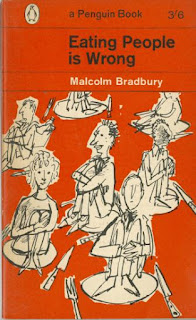
Comments